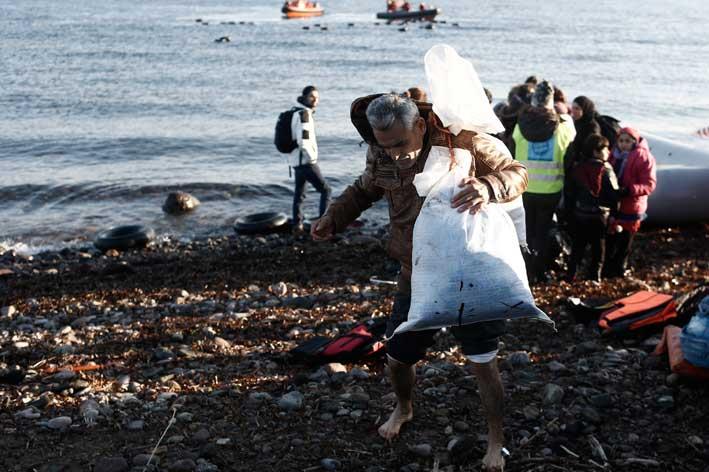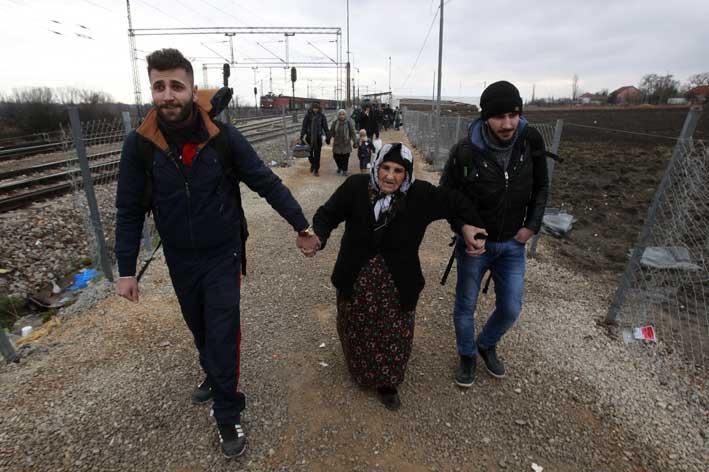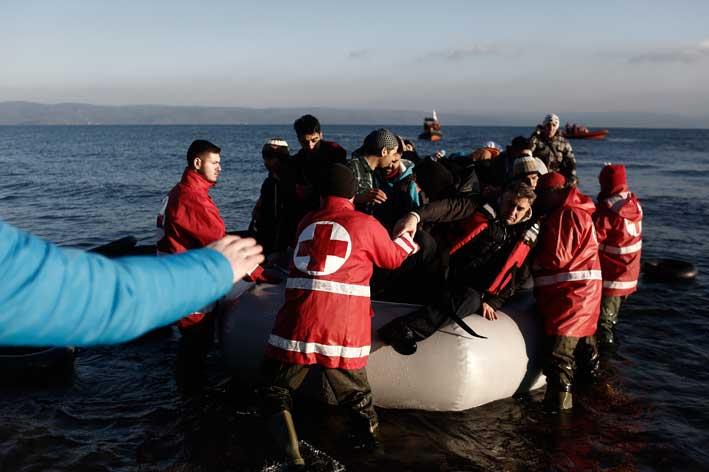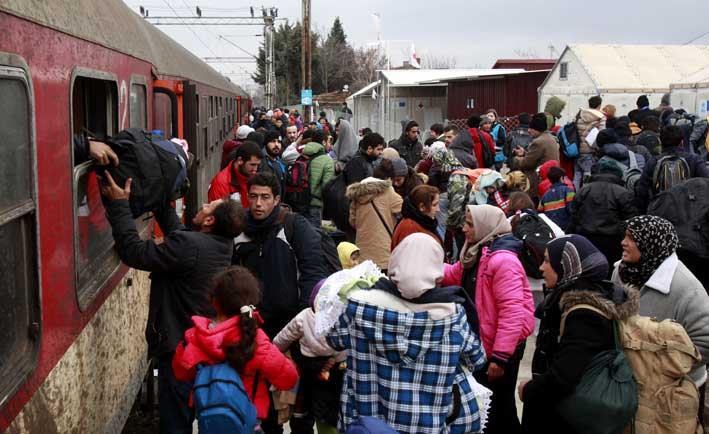The European Commission has laid out the measures it says need to be taken during next week’s EU Summit, which include its own proposal of setting up of a European Border and Coast Guard agency.
In a statement issued in December, the commission had said that the European Border and Coast Guard would bring together an agency built from Frontex and the Member States’ authorities responsible for border management, who will continue to exercise the day-to-day management of the external border.
The new European Border and Coast Guard would have a rapid reserve pool of border guards and technical equipment, able to draw on at least 1,500 experts that can be deployed in under 3 days. The new Agency's human resources would be more than double that of Frontex by 2020.

The agency would have a monitoring and supervisory role and the right to intervene. National coastguards will be part of the European Border and Coast Guard to the extent that they carry out border control tasks. The mandates of the European Fisheries Control Agency and the European Maritime Safety Agency will be aligned to the new European Border and Coast Guard. The three Agencies will be able to launch joint surveillance operations, for instance by jointly operating Remotely Piloted Aircraft Systems (drones) in the Mediterranean Sea.
It would also have a mandate to work in third countries, by sending liaison officers to and launch joint operations with neighbouring third countries, including operating on their territory. It would also have a stronger role in returns. The EC says the agency should be agreed upon by June and made operational during the summer.
Other steps that need to be taken in the Summit include the urgent completion of hotspots in Greece and Italy to ensure the registration and support of refugees, and the end of the wave-through approach and an enforced insistence on the application of EU rules in asylum and border management.

The EC is also calling for a major acceleration of the agreed relocation scheme to alleviate pressure from Italy and Greece and a stronger and more coherent use of the provisions allowing the return of asylum seekers to safe third countries.
EU heads should also seek more cooperation and coordination between countries along the Western Balkans route and the stepping-up of efforts to ensure effective returns and readmissions.
Other points include “addressing the root causes of migration by maximising all forms of leverage, including trade preferences and development, to secure third countries’ commitment to concrete outcomes” and “supporting the basic needs of the most vulnerable migrants and refugees, and in particular children.”

Intelligence on 38,600 suspects
In the same report, the European Commission also refers to efforts to target human smugglers, saying that Europol, the European Police Office, currently has intelligence on more than 38,600 suspects.
The report says EU agencies Europol, Frontex and Eurojust have scaled up their capacity to tackle migrant smuggling, with more coordination, extra resources and a permanent presence in member states under pressure.
“This includes on-the-spot collection of information in the hotspots to help national authorities gather information and to launch investigations. In 2015, 10,735 new suspects linked to migrant smuggling were added to Europol’s database.”

On 22 February Europol will launch the European Migrant Smuggling Centre – an EU information hub on migrant smuggling.
The report says rescue at sea was the first priority for the EU in 2015. Frontex joint operations Triton and Poseidon rescued 250,000 people over the course of the year. “These interventions and the deployment of Frontex Rapid Border Intervention teams in the Aegean helped detect over one million irregular immigrants and apprehend over 900 suspected smugglers.”
“EUNAVFORMED Operation Sophia has successfully moved into a phase that includes boarding, search, seizure and diversion, in international waters, of vessels suspected of being used for migrant smuggling or trafficking. It has so far rescued over 9,000 people and is ready to extend operations into Libyan territorial waters, should the institutional and political developments in Libya allow.

Screening hotspots
The EC reports that, with strong, dedicated EU support Italy and Greece have started to set up, and in some cases completed, hotspots to ensure screening, identification and fingerprinting of third country nationals arriving irregularly at the external EU border. “Registration is a crucial first step in the control and management of the flows. The hotspots are designed to ensure integrated teams of border agents operate in dedicated facilities, 24 hours a day and seven days a week. Everyone arriving in the external borders is registered, fingerprinted, and have their documents checked against national and international security databases. They are then channelled into one of three processes: the national asylum system, the European relocation system or the return system.”
The proportion of migrants whose fingerprints are included in the Eurodac database has risen in Greece from 8% in September 2015 to 78% in January 2016. In Italy the figure rose from 36% to 87%.

The second half of 2015 saw unprecedented numbers of people entering the EU irregularly. At the peak in October 2015 over 200,000people arrived in Greece in one month. Even with a substantial fall to just over 60,000 in January, the figures remain high for the winter months as compared to previous years. The intensified conflict in Syria in recent days is expected to lead to a further influx of refugees into Turkey. “This means that European solidarity will continue to be called upon, in line with the responsibilities the EU has assumed under the 1951 Geneva Convention on the Status of Refugees.”